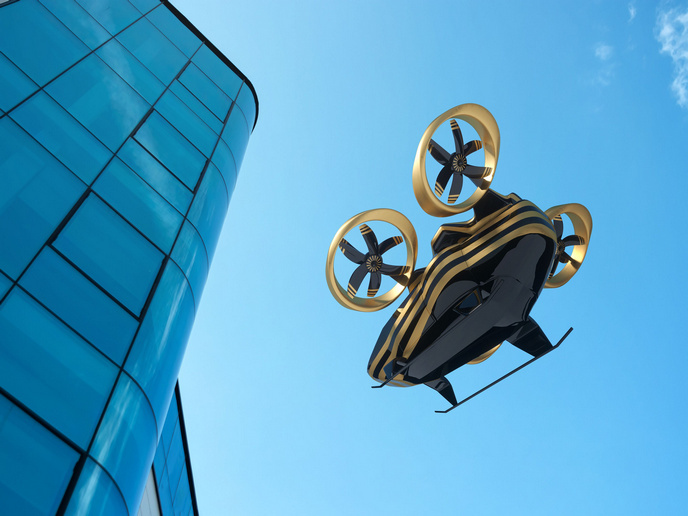Elevating city commutes with safe and efficient flying taxis and drones
As city populations continue to grow and traffic congestion worsens, the demand for innovative transport solutions becomes increasingly urgent. One such solution is urban air mobility (UAM), which involves the use of flying taxis and drones for transport in suburban and urban areas.
Pioneering UAM integration into the urban sky
The aim of the EU-funded Uspace4UAM project was to prepare for the safe introduction of UAM, addressing operational concepts, regulations and standards, while building confidence in a seamless integration of these technologies into everyday air traffic. The project consortium, led by Honeywell, brought together key players in UAM who sought to deliver sustainable solutions from both societal (safety, environment, noise) and economic (business enablers) perspectives. Uspace4UAM’s ambitious plan was to perform up to 215 real-life unmanned aerial vehicle (UAV) and UAM demonstration flights in U-space and controlled airspace. The aim was to receive 100 % advisory board confirmation for solutions that address the gaps limiting automated and autonomous operations of passenger air-taxi services. Furthermore, the project aimed to facilitate future deployment by demonstrating feasibility of four real-life autonomous scenarios for utilisation in smart cities.
Bridging safety, regulations and innovation
Building on CORUS project results and synergistically linking up with the new CORUS-XUAM works, the project consortium examined safety cases and system requirements with regard to UAM. In addition, they focused on establishing regulations and standards to support innovators in creating sustainable business cases, ensuring that UAM services operate safely within a multi-modal transport network. “We set out to deliver results of real interest to early movers, enabling them to make a real market impact in the coming years,” notes Jiri Ilcik, project coordinator. The commitment to innovation and safety underlines the consortium’s role in shaping the future of urban air mobility. Jan Ludvik, Advanced Technology Europe Director at Honeywell Aerospace, says: “Uspace4UAM serves to bridge the gap between development and deployment of U-space capabilities and services, thus ensuring a safe introduction of UAM in the European region. We can only expect great results that will impact standards, not only in Europe but also on a global scale.”
Demonstrations and collaborations shaping the future of UAM
A series of well-defined, iterative and multinational demonstrations with drones and UAM vehicles was conducted, covering various use cases, including mixed operations. These demonstrations helped identify critical enablers for a wide range of UAM service applications that can be applied throughout Europe. UAM demonstrations were undertaken on TECNALIA’s and Vertical Aerospace’s platforms in Spain and the UK. Simulated demonstrations were carried out on Honeywell’s UAM simulator across various cities, while UAV demonstrations were performed by UpVision in the Czech Republic and Dronehub in Poland. The project was funded by the SESAR Joint Undertaking under the EU Horizon 2020 research and innovation programme. As the technology pillar of Europe’s Single European Sky initiative, the SESAR Joint Undertaking coordinates and consolidates all EU research and development activities in air traffic management (ATM), pooling a wealth of expertise to develop the new generation of ATM. “With the efforts made by the Uspace4UAM consortium’s efforts, we can look forward to a future where flying taxis and drones become a safe and efficient mode of transport in urban environments, ultimately transforming how we move within our cities,”
Keywords
Uspace4UAM, transport, flying taxis, drones, Honeywell, cities, SESAR Joint Undertaking, urban air mobility, unmanned aerial vehicle







